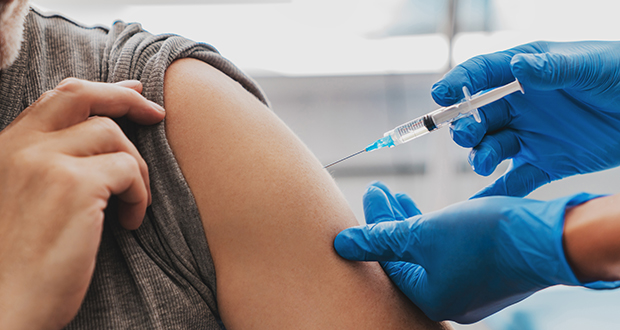More than 5,500 people have received a measles, mumps and rubella (MMR) vaccine as part of the HSE’s catch-up programme.
Established to help combat a recent surge in measles cases, the health service launched the catch-up service in March to encourage greater take-up of the jab.
Figures provided to Irish Medical Times show that, up to the end of April, an additional 5,500 people have received the inoculation as a result of the initiative.
“We are encouraged by the number of people who have been vaccinated so far and note that clinics in third-level institutions have been particularly well attended,” a HSE spokesperson said.
“However, some eligible people have not been vaccinated and we would encourage those individuals to avail of the MMR catch-up programme, particularly if they are planning to travel over the summer holidays.”
In the first four months of 2024, 19 cases of measles were notified to health officials in Ireland, with one death related to the disease reported.
Three measles outbreaks were also recorded, each of which were in private houses with between two and four cases detected within each home.
While around 90 per cent of eligible people in Ireland are thought to have already received their MMR vaccine, uptake of 95 per cent is required to achieve community immunity from the illnesses.
A rise in measles cases here comes after surges seen across the UK, Europe and beyond since last year.
More than 320,000 incidences of the disease were reported worldwide in 2023, almost double the number recorded the previous year.
At the recent global meeting of the European Society of Clinical Microbiology and Infectious Diseases (ESCMID), infectious disease experts warned that 2024 case numbers are on track to at least match the number seen last year, with almost half of the 94,481 cases reported to early April coming from Europe.
Prof Nohynek says: “Measles cases were high in 2019, with the majority seen in Africa, where measles vaccine coverage has been lowest in the world, allowing for unprotected populations, and as a consequence periodic outbreaks,” said Prof Hanna Nohynek of the Finnish Institute for Health and Welfare in Helsinki.
Due in part to the pandemic and misinformation, vaccination rates were lower than expected in recent years, with global measles first-dose coverage in 2022 down three per cent on the pre-pandemic peak of 86 per cent.
She added: “Countries should use measles cases and outbreaks as a tracer to identify weaknesses in immunisation programs and to guide programmatic planning in identifying and addressing these weaknesses.
“Vaccine hesitancy is only one component that can contribute to lower coverage – misinformation about vaccines, access to immunisation services, and on-time vaccination cause immunisation gaps.”
Thanks to measles vaccination, it is estimated that 57 million deaths have been avoided globally this century, with 1.5 million of these in the European region where there has been a 98 per cent reduction in annual measles deaths.
“Over the last 20 years, there has been significant progress toward achieving measles and rubella elimination,” said Dr Patrick O’Connor of the World Health Organisation.
“In order to solidify and maintain those gains, we need to ensure high, uniform and equitable routine immunization coverage; and robust outreach and rapid outbreak response.”
